SCG promotes circular economy to drive economic growth
As the net zero trend has gathered global momentum, $5 trillion has been poured into investments driving sustainable transitions. $300 billion annually by 2035 is the new collective goal for climate finance to developing countries, while supply chains have been shifting to greener products and emerging carbon credit markets.
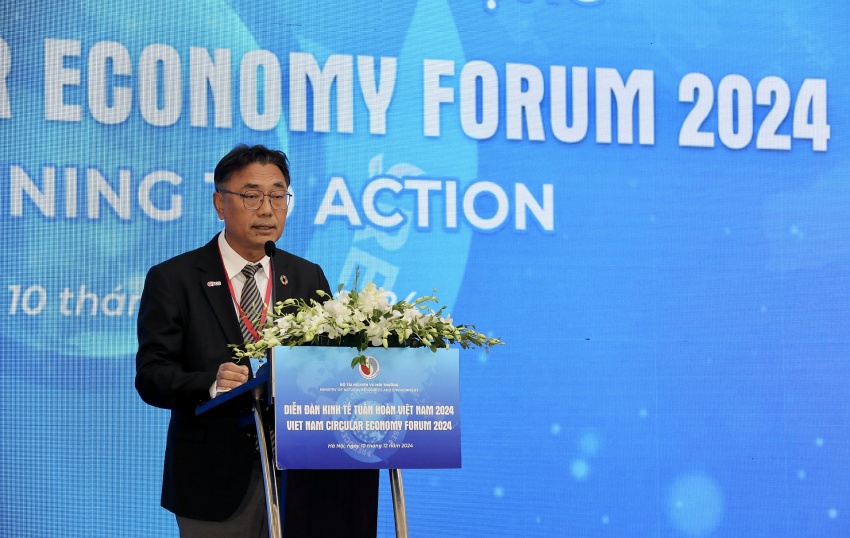 |
| Chana Poomee, chief sustainability officer of SCG Group |
In Vietnam, the adoption of a circular economy is essential for sustainable growth and environmental resilience. Current global challenges, including climate impacts such as extreme weather events like Typhoon Yagi, underscore the importance of transitioning from linear economic models to circular systems that optimise resource use and reduce waste.
"At SCG, we firmly believe that adopting a circular economy is crucial for achieving a sustainable, low-carbon future. This focus aligns with our corporate commitment to inclusive green growth and inspires us to take proactive measures," Poomee emphasised.
With this belief, SCG has joined hands with the Ministry of Natural Resources and Environment to organise the Vietnam Circular Economy Forum over the past three years to promote the understanding and practices of a circular economy, and call for collaboration across sectors on this matter.
SCG’s sustainability strategy addresses the interconnected challenges of climate change and nature loss. Through three core strategies, SCG has adopted a regenerative approach: net zero 2050, nature positive, and inclusive society.
SCG aims to reduce greenhouse gas emissions by 25 per cent by 2030, with a comprehensive approach to energy transition spanning both the power and thermal sectors, focusing on low-carbon products, renewable energy, and carbon capture, utilisation, and storage technologies (CCUS).
"We're not just reducing emissions, we are transforming the way we produce, consume, and recycle to reduce environmental carbon footprint as well as actively restoring ecosystems. Our Nature Positive initiative is scientifically informed, ensuring our actions are both effective and enduring," he said.
Equally important is an inclusive society. A just transition can consider human rights, support workforce diversity, and create opportunities in a low-carbon economy.
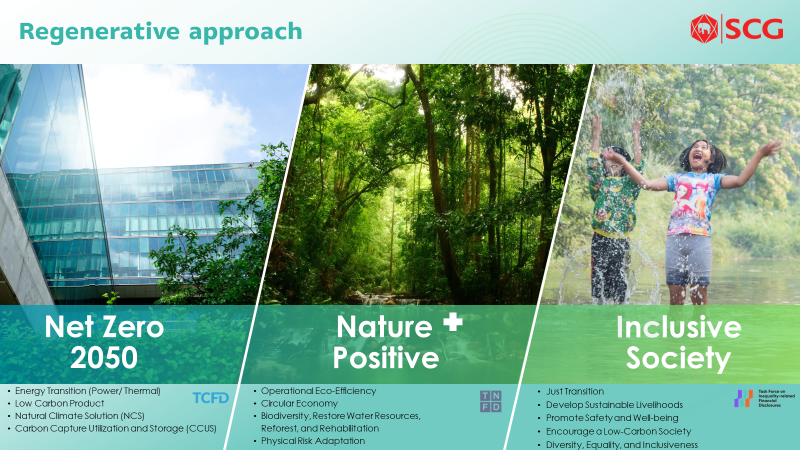 |
SCG has committed to reducing emissions by 25 per cent by 2030, and reducing emissions from fossil fuel sales by 25 per cent by 2031. This focuses on six key levers: adopting alternative fuels, promoting low-carbon products, enhancing energy efficiency, increasing renewable power share, scaling up CCUS, and implementing carbon offsetting initiatives.
For nature positive, SCG is committed to implementing circular business models throughout the entire group. This commitment has led to natural resource conservation. Sustainability is not just about one aspect of a product's lifecycle, but rather it encompasses every stage - from sourcing raw materials to product usage and eventual recycling.
"By focusing on the entire lifecycle of our products, SCG can identify opportunities for improvement and implement innovative solutions that minimise our environmental impact. This holistic approach ensures that we are continuously striving to enhance our sustainability performance and contribute to a more circular and sustainable economy," Poomee emphasised.
Plastic polymer is one of the innovative approaches. SCG Chemicals (SCGC) is determined to develop and deliver solutions, the SCGC Green Polymer™, that address the current global plastic waste crisis. The introduction of a high-quality post-consumer recycled resin from mechanical recycling leveraged recycling technologies from partnerships with European companies Sirplaste and Kras.
Furthermore, SCG incorporates certified circular resin obtained from advanced recycling methods. These methods can convert plastic waste into valuable circular feedstocks. Additionally, SCGC has signed an agreement with Braskem, a Brazilian world leader in bioplastics utilising bio-based feedstocks from renewable resources like sugarcane and cassava.
SCG Packaging has made significant strides in material innovation by developing a lightweight, mono-component plastic material known as R1/R1+. This material is 100 per cent recyclable, demonstrating the commitment to sustainability and resource efficiency. Moreover, Duy Tan Plastics produces PCR (post-consumer recycled) bottles with 50 per cent recycled plastic content. These bottles are designed to be lighter, reducing their weight by up to 40 per cent, and are used by prominent brands such as Motul oil containers and Nestlé.
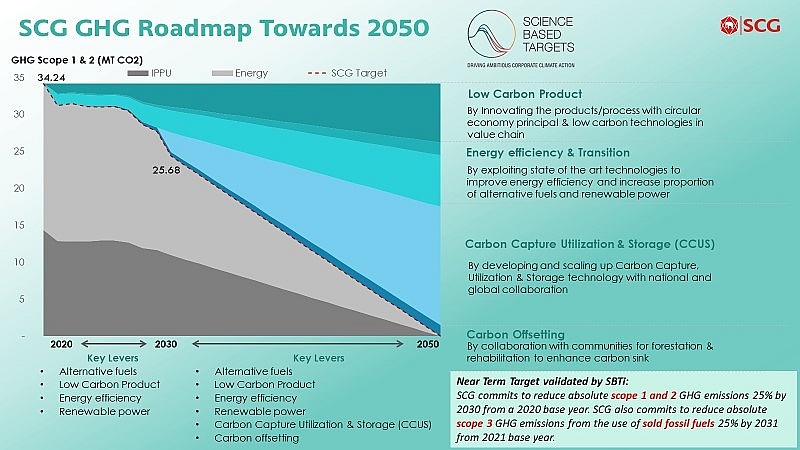 |
In cement and building materials production, SCG is transitioning to renewable energy sources and waste-to-energy transformation. Agricultural waste, such as rice straw and sugarcane leaves, is converted into energy pellets. This initiative not only reduces coal usage, emissions, and pollution but also supports the agricultural community by providing an additional revenue stream for farmers.
Using refuse-derived fuel facilities for sustainable energy production at community landfills produces compressed energy blocks, which significantly reduce CO2 and methane emissions. This contributes to the increased production of low-carbon cement, aligning with the goals for sustainable and environmentally responsible manufacturing processes.
By adopting the principles of the circular economy as an engine for economic growth, SCG is enhancing business sustainability and making a positive impact on communities.
The SCG Waste Segregation Initiative in Vietnam aims to raise awareness about proper waste management, promote circular economy principles, and align with SCG's goals of achieving net-zero emissions by 2050. The programme engaged Long Son commune residents through educational efforts, waste categorisation into three streams, and incentive systems to encourage participation.
SCG provided infrastructure support such as 160 recycled rubbish bins along the main road of Long Son. As of November 2024, the initiative resulted in over 21,000kg of recyclable waste collected, reduced landfill waste, and strengthened community ties, fostering a cleaner and healthier environment.
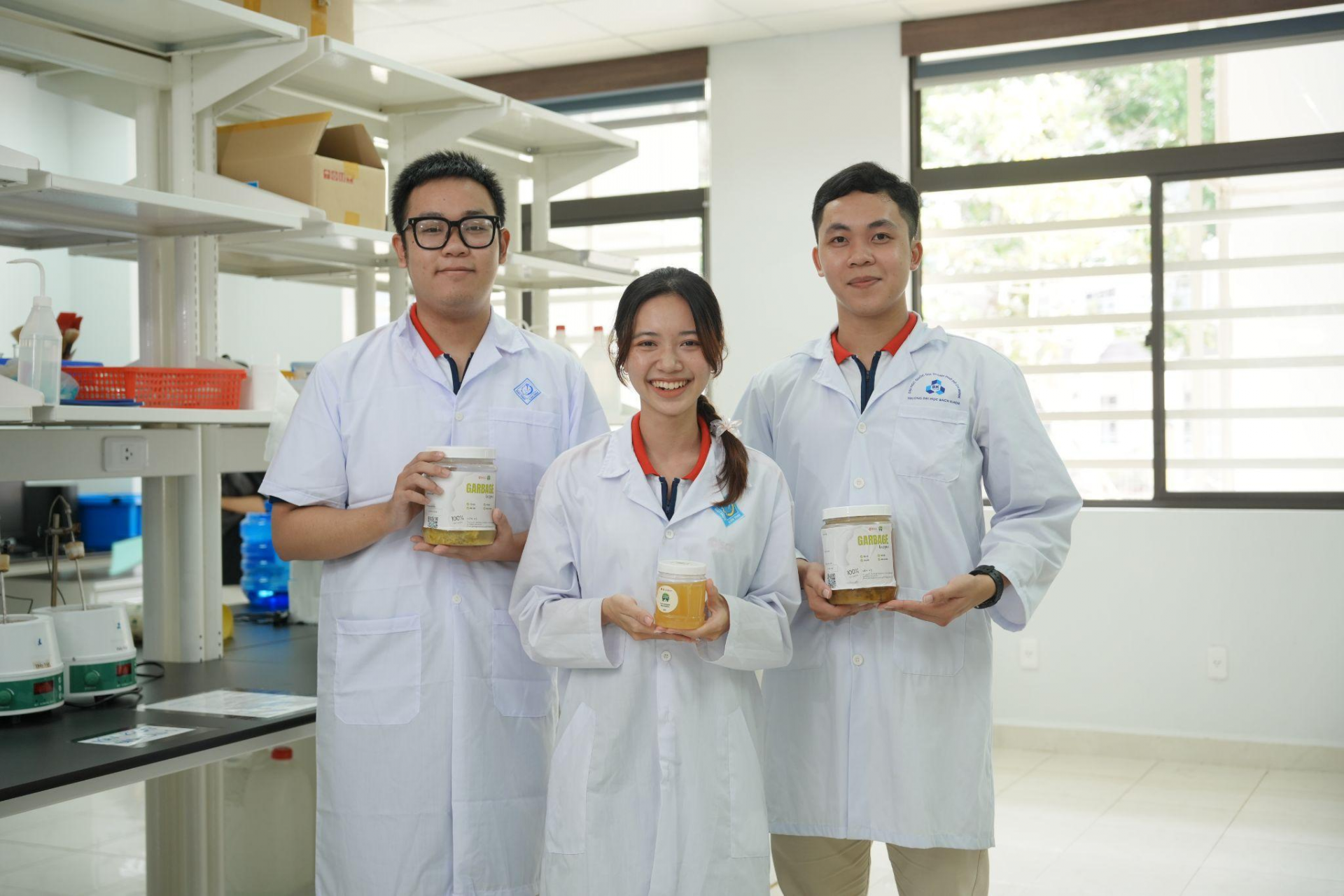 | SCG appoints Vietnamese youths as ESG Ambassadors The SCG Sharing the Dream 2023 scholarship programme has announced groundbreaking results from its ESG Ambassador 2024 initiative in September. |
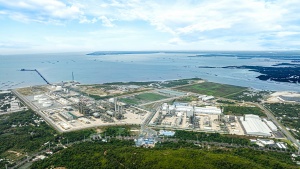 | Long Son Petrochemicals complex put into commercial operation Long Son Petrochemicals (LSP), a subsidiary of SCG Chemicals (SCGC) and a member of SCG Group, announced the start of commercial operations at Vietnam’s first integrated petrochemical complex on September 30. |
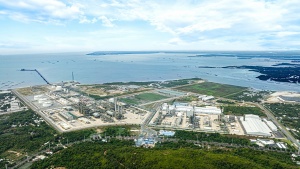 | SCG to pour $700 million into ethane feedstock enhancement project The Siam Cement Public Co., Ltd. (SCG) announced on October 30 that Long Son Petrochemicals Co., Ltd. (LSP) is moving ahead with an ethane enhancement project, with a budget of $700 million. |
What the stars mean:
★ Poor ★ ★ Promising ★★★ Good ★★★★ Very good ★★★★★ Exceptional
Related Contents
Latest News
More News
- Trung Nam-Sideros River consortium wins bid for LNG venture (January 30, 2026 | 11:16)
- Vietnam moves towards market-based fuel management with E10 rollout (January 30, 2026 | 11:10)
- Envision Energy, REE Group partner on 128MW wind projects (January 30, 2026 | 10:58)
- Vingroup consults on carbon credits for electric vehicle charging network (January 28, 2026 | 11:04)
- Bac Ai Pumped Storage Hydropower Plant to enter peak construction phase (January 27, 2026 | 08:00)
- ASEAN could scale up sustainable aviation fuel by 2050 (January 24, 2026 | 10:19)
- 64,000 hectares of sea allocated for offshore wind surveys (January 22, 2026 | 20:23)
- EVN secures financing for Quang Trach II LNG power plant (January 17, 2026 | 15:55)
- PC1 teams up with DENZAI on regional wind projects (January 16, 2026 | 21:18)
- Innovation and ESG practices drive green transition in the digital era (January 16, 2026 | 16:51)

 Tag:
Tag:

























 Mobile Version
Mobile Version